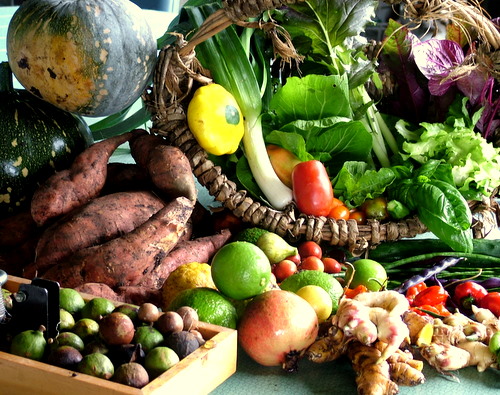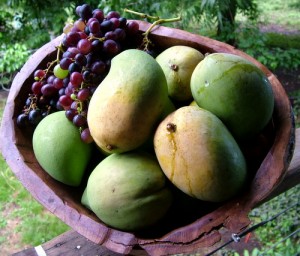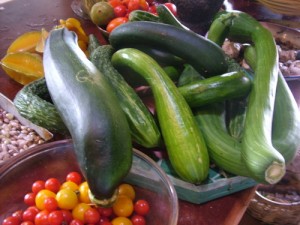Today is the Autumn Equinox. We are passing one of the two points in the wheel of the year when the the day and the night are of equal length. It’s an important marker for gardeners, because from now on the days will be shorter than the nights and shortening fast as we head towards the season of frost and, in some parts, snow.
It’s a good reminder. This week we finally got around to re-bricking our slow combustion stove and cut a load of firewood ready for winter. In a good permaculture mind-set we cut the firewood from fallen limbs near the house of some elderly neighbours, that needed cleaning up so they weren’t a bushfire hazard – multiple purposes.
The other equinox is the Spring equinox in September, when we pass the balance point again on the way towards the long days of Summer. The Spring Equinox used to be called Ēastre in Old English. Traditionally it celebrated dawn, new growth, fertility, rabbits, eggs, rebirth and regeneration. Those themes don’t feel quite right to me in Australia, even in Spring. Here Spring is often dry with a set-your-teeth-on-edge wind and the constant threat of bushfires. However, those themes feel even less right in Autumn, when chooks start to go off the lay in preparation for winter moulting and the summer crops are all harvesting and dying off rather than sprouting!
The Autumn equinox is traditionally a harvest festival all over the world – Chuseok in Korea, Zhongqiu in China, Mabon in Europe, and that feels much more appropriate to this season. It’s a season for getting together with friends and family, feasting and sharing harvests and preserves, remembering how lucky we are to be safe and well fed and that these things can’t be taken for granted.
I’m harvesting beans – snake beans, blue lake beans, purple king beans and madagascar beans, for eating fresh and for drying. Zucchini and squash, eggplants and capsicums are at the peak of their season, and sweet corn is still at the peak of its season. Pumpkins are coming on strong, and I’ve just dug up a big lot of sweet potatoes. Cucumbers are in glut. I have lots of basil for pesto and more chilis than we can eat. The warm wet weather is perfect for the ginger and turmeric too, so I have all the ingredients for curries.
The greens are a bit scarce – I have rocket and amaranth, and enough leaf lettuce just starting to come on. I am picking mizuna, but half for us and half infested with cabbage moths for the chooks.
The figs and the tamarillos are just finishing but the cherry guavas are ripe and the guavas are nearly ready. We have been jealously guarding the bananas from the bush turkeys, and have ten bunches coming on in the next month or so, if we can keep them off. Unfortunately we haven’t been so lucky with the passionfruit – they are well in season but the possum is getting most of them. Carambolas and persimmons are also just about to come on. Pineapples are in the peak of their season and watermelons and rockmelons are just ending. The farmers market has apples (royal gala, granny smith and delicious) coming from not too far away, and the first of the season’s pears. Local fuerte avocados are just starting, and our macadamia trees are bearing well. I’ve picked and processed a good batch of olives this year too.
The citrus season is just about to start. We are picking the first of the limes and lemons.
I am profoundly thankful that I, and my children and loved ones, live in such a rich country. I am stopping for a moment on this equinox to remember how lucky we are.




Such a blessing, to have fresh produce, in abundance even! Fuerte’s are my favourites, but I haven’t had them for years! A great post, thank you…
So wonderful to read about all the lovely things in your garden, thanks for sharing Linda!
Pingback:Roots and Perennials Planting in Late Spring – Trying Sweet Potatoes Yet Again